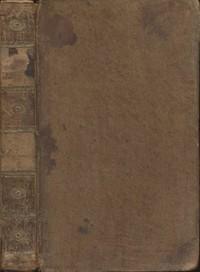|
|
Read this ebook for free! No credit card needed, absolutely nothing to pay.Words: 70601 in 11 pages
This is an ebook sharing website. You can read the uploaded ebooks for free here. No credit cards needed, nothing to pay. If you want to own a digital copy of the ebook, or want to read offline with your favorite ebook-reader, then you can choose to buy and download the ebook.

: A Residence in France During the Years 1792 1793 1794 and 1795 Part II. 1793 Described in a Series of Letters from an English Lady: with General and Incidental Remarks on the French Character and Manners by Biggs Charlotte Gifford John Editor - France His@FreeBooksTue 06 Jun, 2023 A RESIDENCE IN FRANCE, DURING THE YEARS 1792, 1793, 1794, AND 1795; DESCRIBED IN A SERIES OF LETTERS FROM AN ENGLISH LADY; With General And Incidental Remarks On The French Character And Manners. Second Edition. London: Printed for T. N. Longman, Paternoster Row. 1797. Amiens, January, 1793. Vanity, I believe, my dear brother, is not so innoxious a quality as we are desirous of supposing. As it is the most general of all human failings, so is it regarded with the most indulgence: a latent consciousness averts the censure of the weak; and the wise, who flatter themselves with being exempt from it, plead in its favour, by ranking it as a foible too light for serious condemnation, or too inoffensive for punishment. Yet, if vanity be not an actual vice, it is certainly a potential one--it often leads us to seek reputation rather than virtue, to substitute appearances for realities, and to prefer the eulogiums of the world to the approbation of our own minds. When it takes possession of an uninformed or an ill-constituted mind, it becomes the source of a thousand errors, and a thousand absurdities. Hence, youth seeks a preeminence in vice, and age in folly; hence, many boast of errors they would not commit, or claim distinction by investing themselves with an imputation of excess in some popular absurdity--duels are courted by the daring, and vaunted by the coward--he who trembles at the idea of death and a future state when alone, proclaims himself an atheist or a free-thinker in public--the water-drinker, who suffers the penitence of a week for a supernumerary glass, recounts the wonders of his intemperance--and he who does not mount the gentlest animal without trepidation, plumes himself on breaking down horses, and his perils in the chace. In short, whatever order of mankind we contemplate, we shall perceive that the portion of vanity allotted us by nature, when it is not corrected by a sound judgement, and rendered subservient to useful purposes, is sure either to degrade or mislead us. I was led into this train of reflection by the conduct of our Anglo-Gallican legislator, Mr. Thomas Paine. He has lately composed a speech, which was translated and read in his presence, in which he insists with much vehemence on the necessity of trying the King; and he even, with little credit to his humanity, gives intimations of presumed guilt. Yet I do not suspect Mr. Paine to be of a cruel or unmerciful nature; and, most probably, vanity alone has instigated him to a proceeding which, one would wish to believe, his heart disapproves. Tired of the part he was playing, and which, it must be confessed, was not calculated to flatter the censurer of Kings and the reformer of constitutions, he determined to sit no longer for whole hours in colloquy with his interpreter, or in mute contemplation, like the Chancellor in the Critic; and the speech to which I have alluded was composed. Knowing that lenient opinions would meet no applause from the tribunes, he inlists himself on the side of severity, accuses all the Princes in the world as the accomplices of Louis the Sixteenth, expresses his desire for an universal revolution, and, after previously assuring the Convention the King is guilty, recommends that they may instantly proceed to his trial. But, after all this tremendous eloquence, perhaps Mr. Paine had no malice in his heart: he may only be solicitous to preserve his reputation from decay, and to indulge his self-importance by assisting at the trial of a Monarch whom he may not wish to suffer.--I think, therefore, I am not wrong in asserting, that Vanity is a very mischievous counsellor. The little distresses I formerly complained of, as arising from the paper currency, are nearly removed by a plentiful emission of small assignats, and we have now pompous assignments on the national domains for ten sols: we have, likewise, pieces coined from the church bells in circulation, but most of these disappear as soon as issued. You would scarcely imagine that this copper is deemed worthy to be hoarded; yet such is the people's aversion from the paper, and such their mistrust of the government, that not an housewife will part with one of these pieces while she has an assignat in her possession; and those who are rich enough to keep a few livres by them, amass and bury this copper treasure with the utmost solicitude and secresy. A tolerably accurate scale of the national confidence might be made, by marking the progress of these suspicious interments. Under the first Assembly, people began to hide their gold; during the reign of the second they took the same affectionate care of their silver; and, since the meeting of the Convention, they seem equally anxious to hide any metal they can get. If one were to describe the present age, one might, as far as regards France, call it, both literally and metaphorically, the Iron Age; for it is certain, the character of the times would justify the metaphoric application, and the disappearance of every other metal the literal one. As the French are fond of classic examples, I shall not be surprized to see an iron coinage, in imitation of Sparta, though they seem in the way of having one reason less for such a measure than the Spartans had, for they are already in a state to defy corruption; and if they were not, I think a war with England would secure the purity of their morals from being endangered by too much commercial intercourse. Thus, you see, France is to the old what a masquerade is to the ugly --the one confounds the disparity of age as the other does that of person; but indiscriminate adoration is no compliment to youth, nor is a mask any privilege to beauty. We may therefore conclude, that though France may be the Elysium of old women, England is that of the young. When I first came into this country, it reminded me of an island I had read of in the Arabian Tales, where the ladies were not deemed in their bloom till they verged towards seventy; and I conceived the project of inviting all the belles, who had been half a century out of fashion in England, to cross the Channel, and begin a new career of admiration!-- Yours, &c. Amiens, 1793. Dear Brother, Free books android app tbrJar TBR JAR Read Free books online gutenberg More posts by @FreeBooks
: A Tramp's Sketches by Graham Stephen - Russia Description and travel; Jerusalem; Russia Social life and customs; Graham Stephen 1884-1975@FreeBooksTue 06 Jun, 2023

: The Diverting History of John Gilpin Showing How He Went Farther Than He Intended and Came Safe Home Again by Cowper William Caldecott Randolph Illustrator - Humorous poetry English; Horses Juvenile poetry; Wit and humor Juvenile; Horsemanship Juvenile po@FreeBooksTue 06 Jun, 2023

: A Residence in France During the Years 1792 1793 1794 and 1795 Part IV. 1795 Described in a Series of Letters from an English Lady: with General and Incidental Remarks on the French Character and Manners by Biggs Charlotte Gifford John Editor - France His@FreeBooksTue 06 Jun, 2023
|
Terms of Use Stock Market News! © gutenberg.org.in2025 All Rights reserved.






